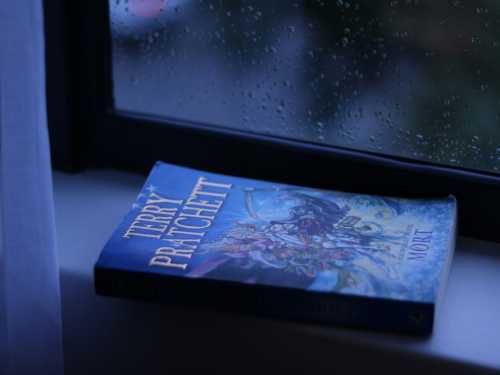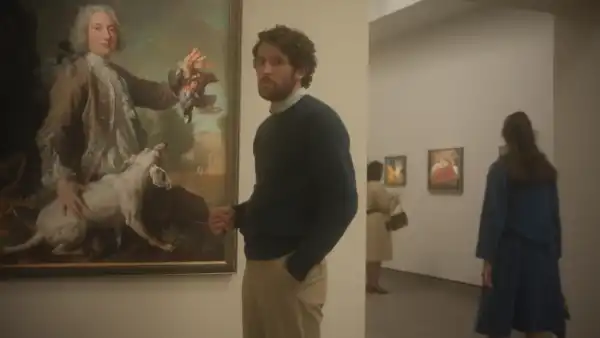
Anybody who plans on seeing “Life Itself,” stop here—almost anything said about the film risks being a spoiler, because its real subject is death itself. In this excruciatingly contrived and ill-conceived multigenerational saga, the writer and director Dan Fogelman (the creator of the TV tearjerker “This Is Us”) dispatches his characters with all the feeling reserved for chess pieces. A viewer seeking guidance from the trailer, for instance, might expect that Olivia Wilde and Oscar Isaac portray the main characters, and they do in, um, a metaphysical way, but Fogelman removes them from the board early in the game. Their characters’ deaths, like the others in the movie, occur not because they reflect any dramatic insight or symbolic import but because Fogelman has set up an outcome that depends upon those moves.
Will (Isaac) and Abby (Wilde) are a married couple in New York—he’s a screenwriter, she’s a graduate student, and she’s pregnant. Abby’s own life has been marked by tragedy—she was left orphaned at the age of seven, when her parents were killed in a car accident. While on a playful stroll with Will, Abby gets hit by a bus, and dies, but the baby, Dylan, lives. Six months deep into his grief, unable even to see the child, Will commits suicide. Dylan (named after Bob) is raised by Will’s parents, Linda (Jean Smart) and Irwin (Mandy Patinkin); then Linda dies, and, as loving and understanding as Irwin is, Dylan’s teen rebellion proves sharp and bitter. She skips college, becomes a rock musician, finds herself in emotional crisis, flees a club for a streetside bench, and, there, meets an N.Y.U. student named Rodrigo—whose story then takes over the movie, which has seemingly only just begun.
There isn’t much in the way of directorial style on view in “Life Itself.” Fogelman is enamored of accidents and abrupt intrusions; his characters take drastic action suddenly, without discussion or reflection, because he subordinates them to external events that set in motion a thin but unyielding chain of simplistic rationalizations. Yet he outfits this rickety and cold-hearted contraption with distracting feints of illustrative flashbacks and false starts and flamboyant dashes of greeting-card wisdom to simulate the liveliness of which the characters are deprived. There’s a film-within-a-film, scenes of the college courtship of Will and Abby, and ready-for-brunch details of the couple’s life, involving Will’s disquisitions on Bob Dylan’s latter-day pop comeback and embellished by a dog named Fuckface. (There’s also a subplot involving a suburban Jewish college student named Shari Dickstein, played by Isabel Durant, which reads like a revenge-taking that Fogelman has been dreaming of for decades.)
To excuse his own facile execution of his characters, Fogelman puts a line into Linda’s mouth at a lunch with Abby and Will, expressing her satisfaction that Will has married a woman whose parents are dead—so that she won’t have to share the grandchildren with another set of grandparents. In the cheery characterization of Linda, the macabre facility comes off as benignly amusing, but the line leaps out of the movie to embody Fogelman’s own callous sub-philosophy of conveniently heartless character rubouts. And the movie’s hardly halfway into its tangled course.
But, first, check the dates: Abby was born in 1985; by the time Dylan turns twenty-one, on the chaotic night of her meeting with Rodrigo, the story is set well in the future—the twenty-thirties, approximately, if Abby had Dylan when she was around thirty. But Fogelman reveals hardly a glimmer of an idea of how that future will differ much from the present day. Instead, he takes us, abruptly, to Spain. There, a farm worker named Javier (Sergio Peris-Mencheta) courts and marries a waitress named Isabel (Laia Costa); they have a son—Rodrigo. The grandiloquent and fabulously wealthy owner of the estate, named Saccione (Antonio Banderas), observes the loving care that Javier devotes to each olive (really) and summons him to his lavish study for a conversation—and a promotion. (This section is held together by the resonant themes of class relations and a working man’s pride, though they, too, are left dangling.)
True to form, the story of Saccione and Javier pivots on matters of health, or, rather, illness. There’s a very strange subplot involving medical treatment for Rodrigo that seems rooted in Fogelman’s extreme pessimism about the state of the Spanish health-care system in the near future. There’s another involving Isabel’s health, and, given the movie’s track record with maternal lives, the turn that her health takes is no surprise.
Neither is the turn that Saccione’s money takes. He himself is an heir; Dylan, raised by grandparents who inhabit a plush town house, is an heiress of sorts herself; and Rodrigo proves to be the beneficiary of Saccione’s wealth, as well. “Life Itself” is, for the most part, a work of heir-conditioning that sets up a domino-string of maudlin, sentimental ancestor-worship based on gratitude for the wealth that those ancestors piled up in a past golden age of possibilities, and which now exists only for newcomers to live long enough to tell the tale. If this movie is any indication, Fogelman’s current-day success and storytelling prowess is a mere prelude to the Fogelman-ballads that his gratefully enriched descendants will one day sing. The movie’s concluding celebratory embrace of generations of forebears ends in 2079—the year of Fogelman’s centenary.
Sourse: newyorker.com






